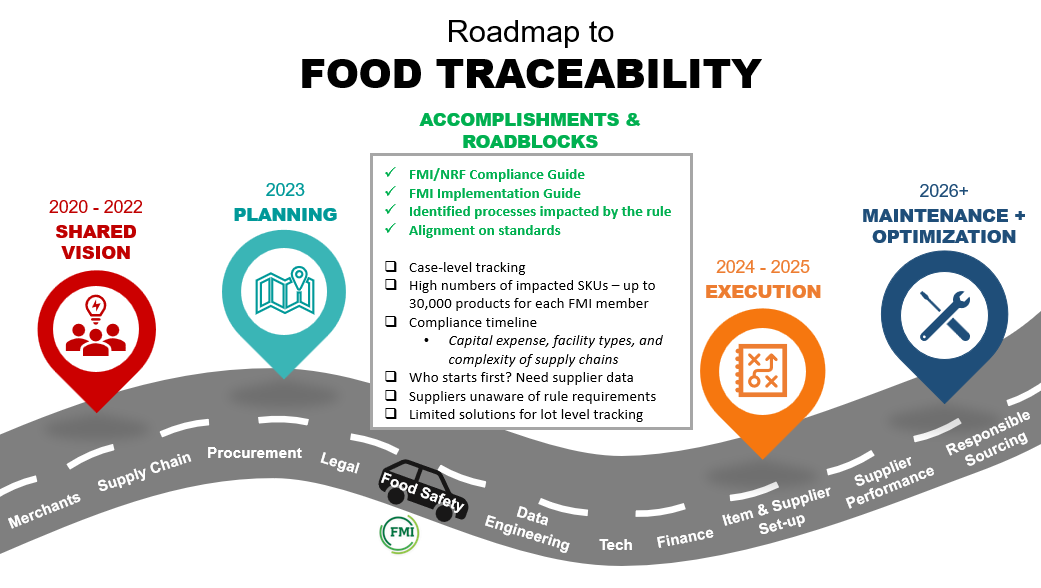By Elizabeth Tansing, Director of State Government Relations, Food Marketing Institute 
The Supplemental Nutrition Assistance Program (SNAP), formerly the food stamp program, is the largest food assistance program in the United States, serving over 46 million Americans. Since the 1960s, the supermarket industry has partnered with USDA and state governments to be the point of redemption for SNAP beneficiaries. Food retailers, through direct interaction in our stores and with our employees, play the critical front-line role in the shopping experience of SNAP customers.
At the turn of this century, the food industry again partnered with states and USDA to cohesively pass the EBT Interoperability and Portability Act (PL 106-171). The 2000 law not only ensures that EBT transactions operate the same from state to state, but it reduces the opportunity for errors. It also allows shoppers living in border states to look for the best prices to stretch their SNAP benefits. This portability of benefits has proven essential during times of natural disaster when families are displaced from their homes as in Hurricane Katrina and Super Storm Sandy.
FMI opposes any attempt to dismantle the consistency of a nationwide system that was created in 2000 and that has served to keep administrative costs, fraud and errors low. Allowing even one state to create a different list of eligible foods or a different retail redemption process for redemption would end the consistency and would create an almost unending task of list maintenance that would have to be staffed, updated and communicated to retailers, customers and manufacturers on a close to real time basis. A typical grocery store stocks some 40,000 items, and an additional 20,000 new food items are introduced into the food market every year.
To assist our members in discussions with their legislators and regulators at both the federal and state level on the issue of SNAP food choice, administrative efficiency and consistency, FMI has updated our SNAP Food Choice Issue Paper. In the paper, we emphasize that creating fifty different state rules and regulations would greatly increase state, federal, retail and consumer costs and remove the efficiencies and fraud reductions the food industry, in partnership with federal and state governments, has worked so hard to accomplish. FMI also references the programs that USDA already has in place and others in either the pilot or development phase regarding healthy food education and incentives.
The supermarket industry remains a committed partner with the government in ensuring that SNAP runs as efficiently as possible. FMI will continue to work with Congress, USDA, the states and other stakeholders to identify possible administrative savings while eliminating any waste, fraud or abuse.


 Industry Topics address your specific area of expertise with resources, reports, events and more.
Industry Topics address your specific area of expertise with resources, reports, events and more.
 Our Research covers consumer behavior and retail operation benchmarks so you can make informed business decisions.
Our Research covers consumer behavior and retail operation benchmarks so you can make informed business decisions.
 Events and Education including online and in-person help you advance your food retail career.
Events and Education including online and in-person help you advance your food retail career.
 Food Safety training, resources and guidance that help you create a company food safety culture.
Food Safety training, resources and guidance that help you create a company food safety culture.
 Government Affairs work — federal and state — on the latest food industry policy, regulatory and legislative issues.
Government Affairs work — federal and state — on the latest food industry policy, regulatory and legislative issues.
 Get Involved. From industry awards to newsletters and committees, these resources help you take advantage of your membership.
Get Involved. From industry awards to newsletters and committees, these resources help you take advantage of your membership.
 Best practices, guidance documents, infographics, signage and more for the food industry on the COVID-19 pandemic.
Best practices, guidance documents, infographics, signage and more for the food industry on the COVID-19 pandemic.
